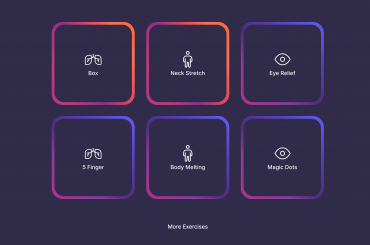Focus is the control of attention. And it is one of the most misunderstood and underrated skills.
Control doesn’t mean some old school kind of “self-control”. Control means the ability to self-regulate stress, anxiety and various other impulses to allow productive struggle against distraction and challenging goals. Put another way – it’s the ability to pay attention and do what you need to do, whether you want to or not. And it is a skill because anyone can improve it, regardless of whether or not you have an attentional disability.
Why is focus so underrated? The issue of distraction from devices has raised its importance slightly. Yet most of us still fail to recognize how pretty much everything starts with our attention. Each piece of knowledge or skill we possess was gained through the lens of our attention. And when applied, that same knowledge and skill gets translated back again through our attention.
To build the case for the skill of focus, here’s 20 reasons why it can improve pretty much everything we value:
- Restore the Joy of Doing: The joy of doing is most commonly considered the psychological state of Flow. It is often called intense focus and comes after a period of productive struggle. Flow can also be found through games, social media and other gamified experiences, but typically at a cost – a loss of ability to generate flow in everyday life. This is because it teaches you to expect flow to come with minimal effort. But it doesn’t work that way. The skill of focus can help us restore the joy of doing to school and beyond.
- Increase Productivity: It should come as no surprise that focus aids productivity. But productivity is maximized from emphasizing process over outcome and regularly reaching flow states, where we get the neurochemicals going that help us push harder and longer. The skill of focus is exactly what helps us do this.
- Generate Curiosity. Curiosity is a trait that improves educational outcomes. We try to elicit it or excite it in various ways, but with mixed results. What really generates curiosity? As Mihaly Csikszentmihalyi states, “Interest follows attention”. And interest IS the motivational spark behind curiosity. Want to teach someone how to be reliably curious? Have them work on paying attention and struggling productively with it.
- Generate Resilience: Resilience is also a trait that improves educational outcomes. But what generates resilience? Most methods center on making sure you are calm and rested. While necessary, this is just half of the equation. To be resilient, you must intentionally endure stress and discomfort, and learn how to regulate your impulses in response. Resilience is generated by embracing routines with regular focus in the face of struggle.
- Resolve the Passion Fallacy. Following your passions is common advice for building motivation. But this isn’t the best advice as it emphasizes outcomes, prioritizes thriving in the moment over thriving in the long term, and skips over building essential skills that set up long term success. What could motivate the development of these skills instead? The ability to generate new interests from attention.
- Long Term Success: The Stanford Marshmallow Experiment famously measured the ability to “delay gratification” and found it to be one of the better long term indicators of academic and economic success, as well as health. Framing the study as a test for “delayed gratification” is where the lede got buried. It was quite clearly a test of ability to focus.
- Improve Financial Discipline: Education reform advocates often suggest adding more personal finance instruction to address our debt problems, financial bubbles, etc. But what they don’t realize is that many of those problems don’t stem from a lack of personal finance knowledge, it is a lack of impulse control. Focus is the missing piece that makes personal finance effective.
- Sharpen Critical Thinking: Education reform advocates also often propose greater emphasis on critical thinking due to its noticeable absence from modern political discourse. The problem is that people don’t lack the ability to be critical. What they lack is the ability to control their impulse to be critical and instead stay flexible and do the research necessary to develop better thinking. Focus is what controls that impulse and sharpens critical thinking.
- Elevate Originality: Most teaching of creativity focuses on methods of expression – how to visualize and generate more ideas. Yet this often isn’t the problem. Humans are quite reliably able to express themselves creatively, especially when young. The greater challenge is originality. How do you teach originality? Originality comes from noticing anomalies, not norms. It comes from seeing what others don’t and avoiding the impulse to pattern match. In effect, it comes from control of attention. Focus is what elevates creativity to originality from simplistic expression.
- Enable Lifelong Creativity: As we mature, a new creative challenge emerges. Our prefrontal cortex fully develops and our executive functions strengthen. And this means we get very good at self-critique. So good that it can often diminish or crush our skill of creative expression. But self-critique of creativity is really just another impulse that needs regulation. The skill of focus can help enable lifelong creativity.
- Diminish Self-Criticism: Humans of all ages struggle with self-critique. It comes out when confronted with failure or high rates of error. One of the more proven methods of coaching to overcome this tendency is called the Inner Game. It was famously developed by a tennis coach who realized asking his students to notice the spinning of the ball helped develop their backhand skills better than the goal of improving their backhands – and he used it to develop a whole coaching method that helps you use your attention as a guide to any pursuit. Focus is the way whenever failure and error is involved.
- Stabilize the ADHD Crisis: There is a growing ADHD crisis. Many legitimately suffer and require medical intervention to just function. But the awareness of this crisis brings with it a new problem. Focus is a challenge for everyone, and the infinitely relatable definitions of ADHD too often lead to self-diagnosis and worse, fixed thinking about one’s ability to overcome attentional challenges. An understanding of the skill of focus can help rationalize how we think about this and get everyone on a better path.
- Improve Connection: The loneliness epidemic is the result of many people not feeling heard or understood. An ability to listen well is sorely needed in all contexts of life. And yet there are so many impulses that interfere with good listening. Impatience. Pattern matching. Simply waiting for your turn to talk. Focus is precisely what helps you manage your impulses and bring the kind of listening that improves our sense of connection.
- Manage Anxiety: Modern living brings pervasive anxiety, that much is clear. The calm and safety we seek feels elusive. The staggering awareness, social comparison and infinite choice that information technology brings is a massive contributor. Managing your exposure to technology must be part of the solution, but it’s not enough. Mindfulness helps rest and restore, but this too feels mismatched to the challenge. We think what is missing is the sense of accomplishment that comes from regular deep focus. It brings an incomparable joy and calm that keeps anxiety at bay.
- Eliminate Burnout: Burnout isn’t from some uniquely new hardship of modern life, it is from uniquely new technological pleasures that diminish our ability to focus and develop flow from everyday life. A stronger skill of focus can help us order our conscious experience and find the joy in the ups and downs of what we do.
- Improve our Health: It almost goes without saying that our health improves when we can set goals and self-regulate our impulses. With focus and intention, we can eat better, sleep better, and exercise more regularly. Our health follows our ability to focus.
- Bring a Future of Jobs: Automation will define the future of work. What can be automated, will be. A good rule of thumb is that once a skill or expertise is an established practice, it will be automated – as automation simply requires sufficient data to learn from. Focus helps you discover and make a career out of what isn’t established practice.
- Diminish Polarization: Polarization is fed by misinformation, and our biological impulses towards outrage, fixed opinions, and ideology. Focus teaches you to resist the impulses that fuel polarization, preserves the ability to listen to others even if you disagree with them, and helps you choose the courage to find solutions and to compromise instead of stoking outrage.
- Restore Dynamism and Progress: Progress has always been fueled by people solving seemingly boring, unpopular, hard problems because they found them interesting. What made those problems interesting was focus. If we want to restore progress and American dynamism, we must make focus one of the most important educational priorities.
- Preserve Free Will: Free will is the capacity to choose your own path in life – to live free from coercion from outside forces. As AI gets better and better, it will increasingly be able to coerce our behavior through the guise of giving us what we want. In order to preserve free will, we’ll need a much stronger skill of focus than ever to preserve free will and human flourishing.
Have an addition? Let us know!
Here’s some additional reasons that have come up after our initial publishing:
Lifelong learning: Want your students to become lifelong learners? The bad news is that neuroplasticity tends to naturally shut down by the age of 25. But the good news is that there is one skill that can cut through this decline – a developed skill of focus.
Prevent Global Thermonuclear War: When you are the officer in charge and you see an alarm stating a global superpower has launched a nuclear assault on your country, what would you do? Thankfully what Stanislav Petrov did was control his impulses, disobey orders and prevent the launch of a counterattack. His focus in this moment saved hundreds of millions of lives.



